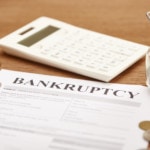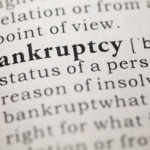Chapter 13 Bankruptcy
Chapter 13 Bankruptcy Eligibility
If you’re considering declaring bankruptcy, it’s important to remember that there are several different types of bankruptcy, and each bankruptcy chapter has specific requirements. There are many requirements for filing under Chapter 13 bankruptcy relief. Filing bankruptcy with Chapter 13 in Greensboro, NC and the Triad area is for those who earn a significant income…
Read MoreFiling Chapter 13 Bankruptcy in Greensboro, NC
If you are struggling to pay your bills, and are seeing the debt pile up with no way forward, it may be time to file for a Chapter 13 bankruptcy NC. Chapter 13 allows those with enough income to repay all or part of their debts on a three to five year repayment plan as…
Read MoreChapter 13 Bankruptcy Can Halt Foreclosure
One of the leading causes of filing for bankruptcy is the inability to repay a mortgage, or falling behind on a mortgage and not being able to catch it back up. Filing a Chapter 13 bankruptcy imposes the Automatic Stay (the “Stay”) against all creditors, including a mortgage company who is instituting a foreclosure proceeding. In…
Read MoreTypes of Bankruptcies | Understanding Each Chapter Bankruptcy Option Available To North Carolina Residents
Bankruptcy is governed only by federal law. The federal laws of the United States are “codified” within books of various groups, almost like volumes, with each volume receiving a numerical title. For example, Veterans’ Benefits are addressed in Title 38 of the U.S. Code, whereas Title 17 addresses Copyrights. Bankruptcy is found in Title 11…
Read MoreDifferences Between Chapter 7 & Chapter 13 Bankruptcy
Chapter 7 and chapter 13 bankruptcies each have their own advantages and disadvantages. However the main difference between chapter 7 bankruptcy and chapter 13 bankruptcy for an individual or a couple is usually about the retention of property. The most common question asked is, “Will I get to keep my house” although some wish to…
Read MoreThe History of Bankruptcy
In ancient times, relief from debt was unknown. The exception was within the Old Testament nation of Israel in which, every seventh year, debts were absolved regardless of the amount (Deut. 15). Until the last century, in most every culture, an indebted individual faced enslavement, often for life, or imprisonment until the debt was paid.…
Read MoreBankruptcy Glossary
Assets All tangible and intangible property that provides benefit, either real or potential, to its owner or potential owner. Bankruptcy A petition to place the financial affairs of an individual or a business that is having difficulties paying debts or is facing the inability to repay certain debts under the control of a bankruptcy court.…
Read More






